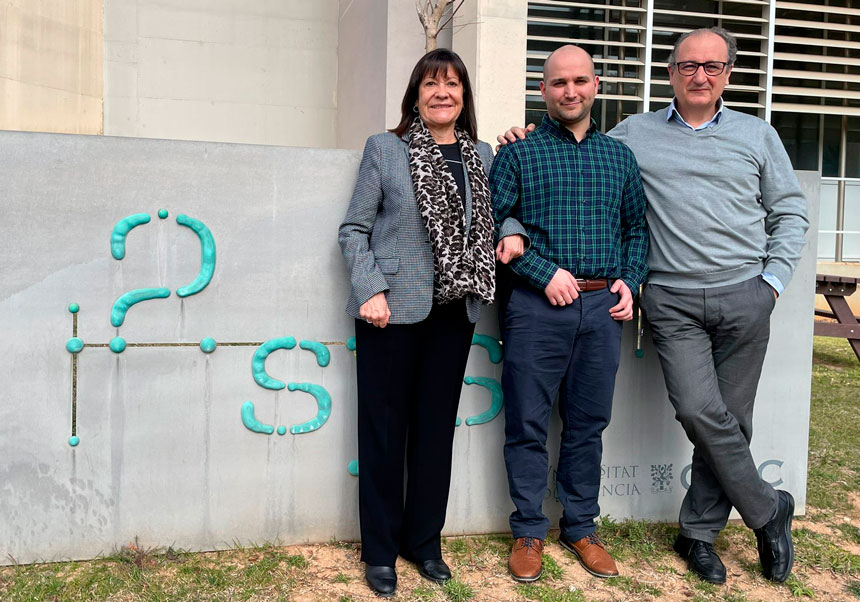Users
Social media
- More details here...
- Address
Parc Científic de la Universitat de València C/
Catedrático Agustín Escardino, 9
46980 Paterna (Valencia) Spain - Email:
iu.i2sysbio@uv.es - Phone:
(+34) 963544810
- Address
Links
Jesús Marín defends his thesis on the response of the intestinal microbiota to an antibiotic

Investigation & Education
Thesis
Jesús Marín defends his thesis on the response of the intestinal microbiota to an antibiotic

In this thesis, directed by Amparo Latorre and Andrés Moya, we have studied how treatment with an antibiotic disturbs the intestinal microbiota of the cockroach Blattella germanica. The thesis was defended on February 13, 2023.
Symbiosis is a widespread phenomenon in nature and can be defined as a close and long-lasting biological interaction between two or more species. In this thesis, titled “A longitudinal study of perturbations on gut microbiota of Blattella germanica due to periodic antibiotic treatment”, we focus on the symbiosis between the cockroach Blattella germanica and its intestinal microbiota. In this type of relationship, insects are usually able to feed on nutrient-poor diets that can be improved with the participation of prokaryotic metabolism, while microorganisms obtain protection and an easy source of nutrients from the host's diet. The intestinal tract can host a great diversity of microorganisms that carry out a fabulous variety of metabolic reactions not available in eukaryotes. This is the case in humans and other mammals, as well as in some insects such as termites, bees or cockroaches. Metagenomic studies on the microbiota usually focus on the response of the microbiota under stress conditions or to changes in diet, antibiotic consumption, age differences, host genetics or various treatments. But there is a factor that is usually left aside, the factor of temporal continuity. This is important to check the evolution of the changes and not just have a static image of the final state. Longitudinal studies take images of the state of the microbiota at different times. In this thesis, a longitudinal experiment was carried out with five populations of cockroaches with a duration of 105 days. Three of them were treated with the antibiotic kanamycin and the other two were control populations. Bioinformatic analyzes were carried out to evaluate the diversity of microbiota under the pressure of antibiotic treatment over time. The stability of the microbiota, co-occurrence, resilience, robustness, changes in the functional profile and the effect of the antibiotic on the biological fitness of the cockroaches were also verified. Kanamycin affects the diversity of the intestinal microbiota and some taxa such as Lachnosclostridium and Parabacteroides were especially resistant. It was also observed that phylogenetically similar taxa tend to have a similar response to treatment and that the functional profile of the intestinal microbiota is affected by kanamycin. However, the antibiotic does not seem to affect the health status of the insect.
Jesús Marín carried out his doctoral research in the Evolutionary Genetics group under the supervision of Amparo Latorre and Andrés Moya, professors at the University of Valencia and researchers at the Institute of Integrative Systems Biology I2SysBio (UV-CSIC). During the development of the research Jesús Marín stayed at the Institut Pasteur (Paris). The qualifying panel was made up of Francisco Silva (I2SysBio), Ana Elena Pérez Cobas (Ramón y Cajal Institute for Health Research IRYCIS, Madrid) and Laura Gómez Valero (Pasteur Institute, Paris), who rated the thesis as outstanding.


